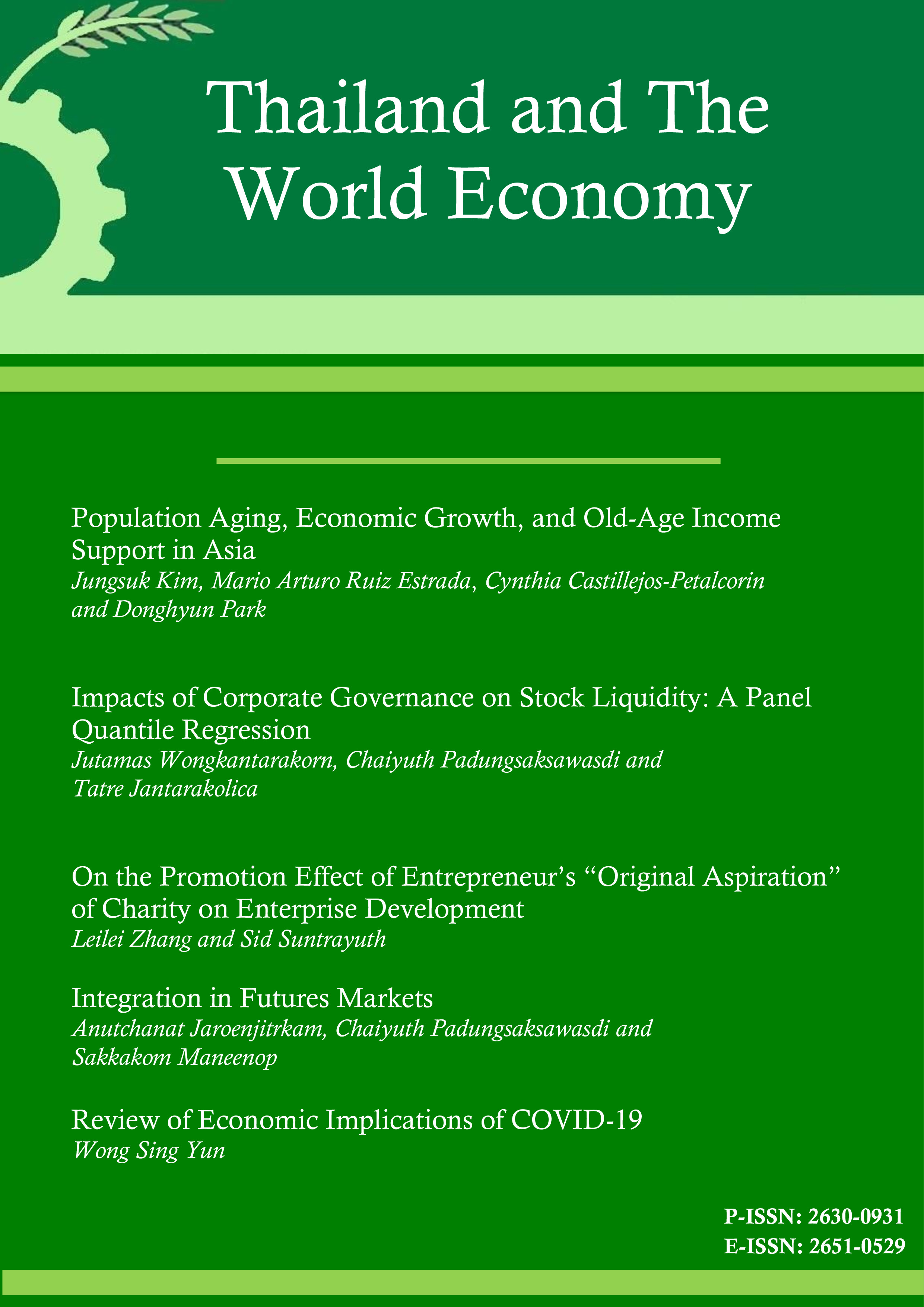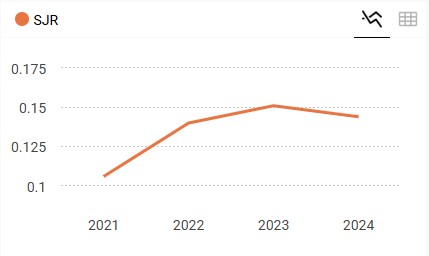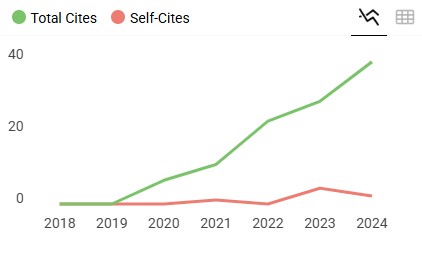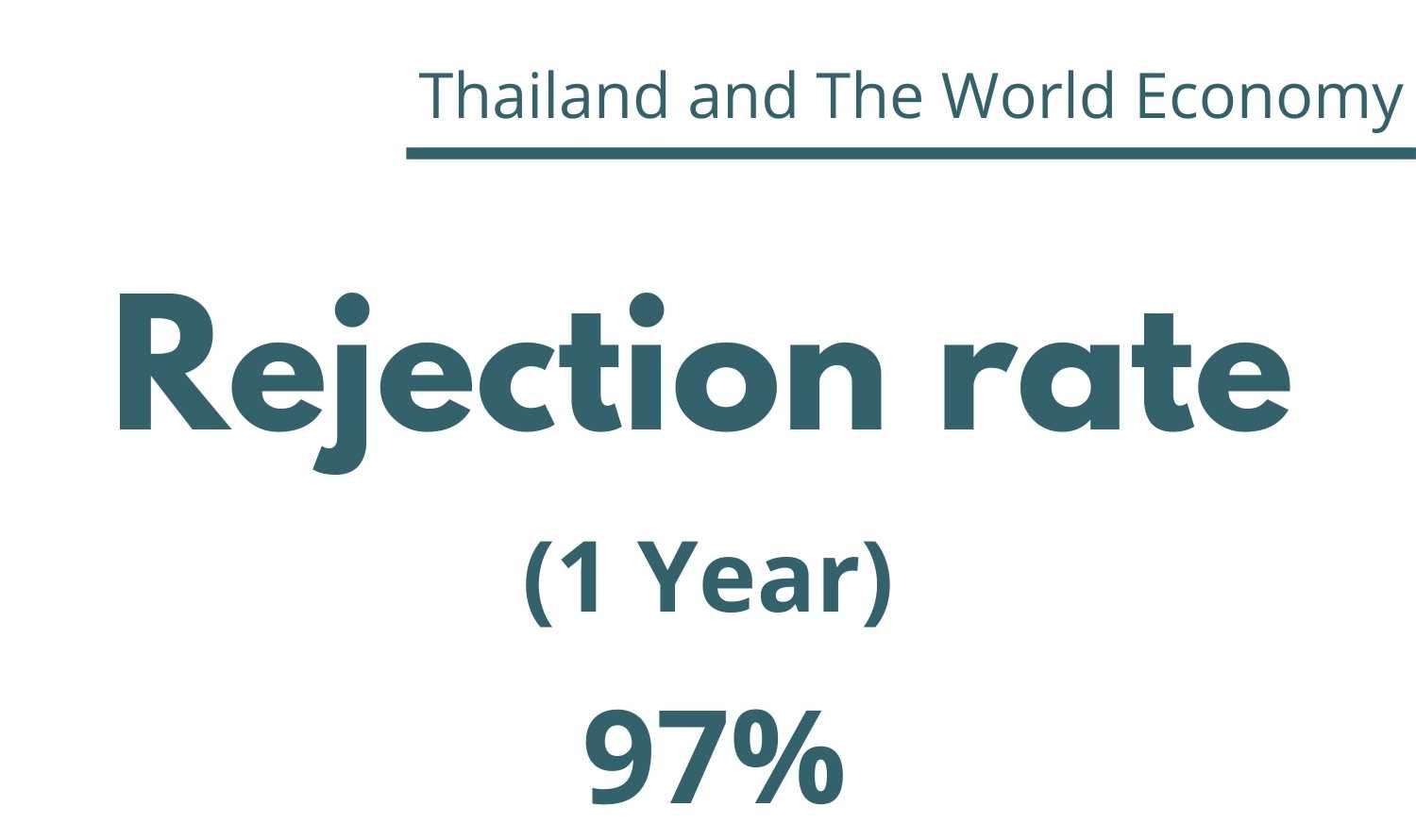On the Promotion Effect of Entrepreneur’s “Original Aspiration” of Charity on Enterprise Development
Keywords:
Entrepreneur, Original Aspiration of Charity, Enterprise DevelopmentAbstract
This study explores why the charitable entrepreneurs have original aspiration of charity, and how their “original aspiration” promotes the development of their enterprises based on qualitative research in the special social context of the lagging charity causes and the imperfect enterprise charity tax laws without good implementation in China. Through face-to-face in-depth interviews with 24 philanthropic and non-philanthropic entrepreneurs in 12 provinces and 24 cities across the country, using continuous analysis and induction method, combined with NVIVO software for coding analysis, it is found that the source of entrepreneur's “original aspiration” of charity is charity faith, while adhering to the original aspiration of charity, and gaining “popular support” from the original aspiration of charity and stimulating “psychological resilience” can facilitate “getting rewards from doing good deeds”. Entrepreneurs with “original aspiration” of charity can have a good promotion effect on the development of enterprises. Finally, this study conducted a questionnaire survey with 24 entrepreneur assistants and a semi-structured interview with eight entrepreneurs. The combination of triangular cross-certification and contra-certification was used to further test the validity of the theory. At present, as indicated in China National Knowledge Internet (CNKI), this study is the first case from this perspective, and it shows certain theoretical innovation.
References
Brammer, S., & Millington, A. (2006). Firm size, organizational visibility and corporate philanthropy: An empirical analysis. Business Ethics: A European Review, 15(1), 6-18.
Campbell, L., Gulas, C. S., & Gruca, T. S. (1999). Corporate giving behavior and decision-maker social consciousness. Journal of Business Ethics, 19(4), 375-383.
Carroll, A. B. (1979). A three-dimensional conceptual model of corporate performance. Academy of management review, 4(4), 497-505.
Chen, D. (2012). Corporate charity responsibility from the perspective of institutional economics. Social Scientist, (10), 70-73 (in Chinese).
Chen, Y.., Wu, Z., & Li, M. (2015). Tax incentives for charitable donations in American companies. China Market, (46), 34-58 (in Chinese).
Du, X.., & Yu, L. (2009). The interest relations of enterprise stakeholders: Conflict or integration. Journal of Shanxi University of Finance and Economics. 31(6):,59-65.
Ding, Y. (2012). Problems & countermeasures of China's corporate charitable donations. Science and Technology Information, (32),493 (in Chinese).
Eisenhardt, K. M. (1989). Building theories from case study research. Academy of management review, 14(4), 532-550.
Fombrun, C. J., Gardberg, N. A., & Barnett, M. L. (2000). Opportunity platforms and safety nets: Corporate citizenship and reputational risk. Business and society review, 105(1), 85-106.
Fombrun, C., & Shanley, M. (1990). What’s in a name? Reputation building and corporate strategy. Academy of management Journal, 33(2), 233-258.
Godfrey, P. C. (2005). The relationship between corporate philanthropy and shareholder wealth: A risk management perspective. Academy of management review, 30(4), 777-798.
Guo, P. (2014). Promotion of tax incentives and policy improvement for charitable donations. Taxation Economics Research, 19(2), 24-28.
Huang, X., & Wu, X. (2015). A policy tool for charitable donation: Tax incentives. Wuhan University Journal (Philosophy and Social Sciences Edition), 68(4), 28-33.
Ji, F., & Mu, Y. (2016). Research on influencing factors of traditional enterprises’ internetization transformation based on grounded theory. Hunan Social Science, (6), 141-146 (in Chinese).
Jin, X. (2019). Characteristics of the chairman of private enterprises, corporate culture and corporate charitable donations. Scientific decision, (8), 6 (in Chinese).
Jones, T. M. (1995). Instrumental stakeholder theory: A synthesis of ethics and economics. Academy of management review, 20(2), 404-437.
Kanter, R. M. (1999). From spare change to real change: The social sector as beta site for business innovation. Harvard business review, 77(3), 122-123.
Li, Q.., & Liu, Y.. (2009). Empirical research on the influence of corporate charity on human resource acquisition. Economic Research Herald, 25 (117), 1.
Li, Y. (2016). Evaluation and prospect of charity tax relief system in China. Journal of Beijing University of Aeronautics and Astronautics (Social Science Edition), 29 (1) (in Chinese).
Li, Y. (2014). A Study on the Legal System of Taxation on Public Welfare Donations in China . Master’s thesis , Harbin Engineering University, China. Retrieved from https://kns.cnki.net/KCMS/detail/detail.aspx?dbcode=CMFD &dbname=CMFD201801&filename=1017243214.nh&v=MjkxMzdXTTFGckNVUjdxZmIrUnRGeURrVXJ6QlZGMjZHYkc4SGRQTnE1RWJQSVI4ZVgxTHV4WVM3RGgxVDNxVHI=.
Lin, X.g. (2015). Analytical induction and continuous comparison: An approach to qualitative research. Peking University Education Review, 13 (1), 16-39.
Luo, D., & Tang, Q. (2009). Research on institutional environment and performance of Chinese private listed companies. Economic Research, 2 (108), 106-118.
Luo, X., & Bhattacharya, C. B. (2006). Corporate social responsibility, customer satisfaction, and market value. Journal of marketing, 70(4), 1-18.
Lu, C., Wu, J., & Zheng, B. (2016). An empirical analysis of the impact of corporate income tax policies on corporate charitable donations: A case study of 662 listed companies in China's A-share transactions in 2014. Economic and Management Review, 32 (3), 110-117.
Ning, S., & Chen, Q. (2017). Research on the relationship between charitable donations, corporate social responsibility and real earnings management. China Forestry Economy, (5), 15-19 (in Chinese).
Pandit, N. R. (1996). The creation of theory: A recent application of the grounded theory method. The qualitative report, 2(4), 1-15.
Pirsch, J., Gupta, S., & Grau, S. L. (2007). A framework for understanding corporate social responsibility programs as a continuum: An exploratory study. Journal of business ethics, 70(2), 125-140.
Qu, S., & Wu, J. (2017). Evaluation of the incentive effect of corporate income tax policies for charitable donations in China: A quantitative analysis based on the breakpoint regression design of China listed companies. Economic and Management Review, 33(1), 95-103.
Song, B. (2018). Reform of corporate income tax system and development of charity. Finance and Accounting Newsletter, (8), 28 (in Chinese).
Sui, W., Zhang, H., & Che, L. (2016). Serving benefits? An empirical analysis of the instrumentality of corporate charitable donations. China Soft Science, (3), 107-129 (in Chinese).
Saiia, D. H., Carroll, A. B., & Buchholtz, A. K. (2003). Philanthropy as strategy: When corporate charity “begins at home”. Business & Society, 42(2), 169-201.
Smith, C. (1994). The new corporate philanthropy. Harvard Business Review, 72(3), 105-114.
Strauss, A., & Corbin, J. (Eds.) (1997). Grounded theory in practice. Thousand Oaks, CA: Sage.
Sun, Y. (2016). Functional obstacles and improvement paths of the social assistance operation mechanism. China Administration, 10, 40-44 (in Chinese).
Sen, S., Bhattacharya, C. B., & Korschun, D. (2006). The role of corporate social responsibility in strengthening multiple stakeholder relationships: A field experiment. Journal of the Academy of Marketing science, 34(2), 158-166.
Vlachos, P. A., Tsamakos, A., Vrechopoulos, A. P., & Avramidis, P. K. (2009). Corporate social responsibility: attributions, loyalty, and the mediating role of trust. Journal of the Academy of Marketing Science, 37(2), 170-180.
Wang, L. (2009). From the perspective of Weber’s theory of social action, China’s corporate charitable donation behavior-reflections caused by the Wenchuan earthquake. Social Science Forum, (2), 94-96 (in Chinese).
Wu, J. (2010). Exploring preferential tax policies for charitable donations of Chinese companies. Accounting Research, (2), 26-28 (in Chinese).
Wang, S., & Liu, S. (2016). Case study of Haier Group’s business model evolution: “Enterprises that change over time.” Science of Science and Technology Management, 37 (4), 70-78. (in Chinese).
Wang, J., & He, A. (2011). Psychological attribution and policy intervention paths of consumers' low carbon consumption behavior: An exploratory study based on grounded theory. Nankai Management Review, 14 (4), 80-89 (in Chinese).
Wang, G. (2010). Who directed the American charity show. Social and Public Welfare, (3), 82-84 (in Chinese).
Xie, Y., & Ding, J. (2015). From survival relief to development relief: The development dilemma and perfecting path of China’s social assistance system. China Soft Science, (11), 39-49 (in Chinese).
Xu, X. (2007). Research on corporate charity. PhD dissertation , Tongji University, China . Retrieved from https://kns.cnki.net/KCMS/detail/detail.aspx?dbcode =CDFD&dbname=CDFD9908&filename=2007219764.nh&v=MTE1NTkxRnJDVVI3cWZiK1J0RnlIaFU3ck9WMTI3R2JHNUY5YktxNUViUElSOGVYMUx1eFlTN0RoMVQzcVRyV00=.
Yin, R. K. (2003). Designing case studies. Qualitative Research Methods, 359-386 (in Chinese).
Zhang, F., & Hu, G. (2012). Thinking on optimizing tax deductions for charitable donations in Chinese enterprises. Economic Research Reference, 42.
Zhang, Q., & Han, Y. (2015). The current situation and development path of Chinese charitable donations-based on the analysis of Chinese charitable donations report. China Administration, (5), 18 (in Chinese).
Zeng, J., Zhang, Y., & Yang, X. (2016). Religious belief and the keynote of personal social responsibility of senior management. Management World, (4), 97-110 (in Chinese).










